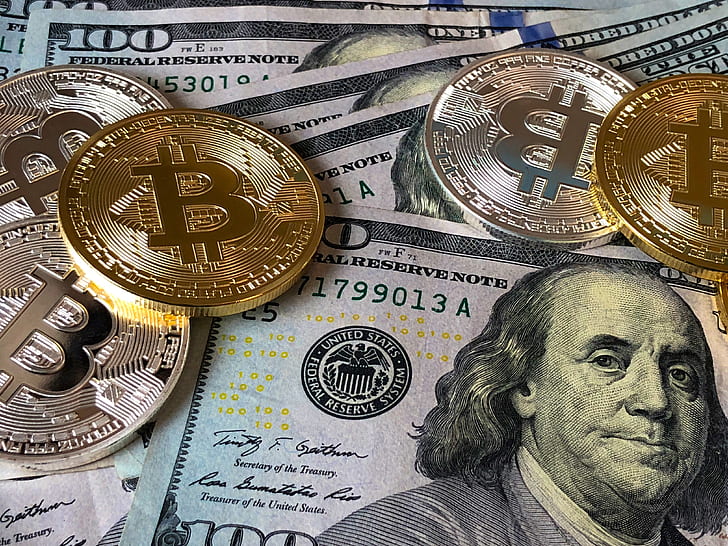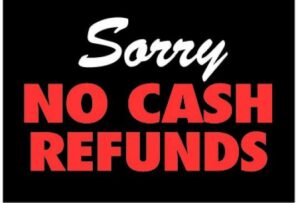US could have a digital currency in 12-18 months.

A Digital Currency is Being Openly Discussed
I think many people underestimate how quickly a digital currency could become a reality in the US (and possibly Canada). Some of the following stories are a few months old but taken together, they present a strong case that a digital currency could become a reality much more quickly than people are aware of.
The Prediction: A Digital Dollar (Pontentially) in 12-18 months
Sheila Bair, former chairman of the U.S. Federal Deposit Insurance Corp
Transcript: (June 26, 2020)
I’ve been a big big advocate of digital currency central bank-backed or issued digital currency that actually could be distributed directly to households in times of stress
Give them cash you know don’t give them more debt and find what technology will allow you today to have a transmission mechanism that goes directly into households and obviously congress needs to authorize that there need to be very tight controls around it
but nonetheless in a situation like that we’ve seen how the government and the IRS on the fiscal side has struggled to get EIP funds to households those payments notwithstanding some of the problems and transmitting the payments have done a lot of good for the economy
and so but having some type of automatic stabilizer where cash could actually be distributed through digital wallets which are fairly easy to set up right now right into households that would be so much more efficient than pumping all this money into financial markets and seeing this giant chasm right between you know what’s going on the stock and bond markets and what’s going on with main street
Sheila, the digital currency idea is super interesting because there’s a real concern that the US is behind especially compared with other countries notably china are you concerned about that race to create a digital currency
Well I am I think you know we are privileged to have the world’s global reserve currency I don’t see that changing anytime soon but I do think one of the undercurrents of what china is doing at least especially in developed countries that have unstable currencies is to uh default to the renminbi you know as the currency of choice that they’re using their own countries through their central bank’s digital currency
So yeah I think that’s exactly what’s going on I think we need to wake up to it we shouldn’t be too complacent about our leadership position I think you know or the strength of our system the strength of our fed and its independence and its integrity I think will always give us the edge but we need to effectively use this technology domestically I think it’s insurgently needed but we should also think about how the dollar is used throughout the world.
The other thing nice about digital currency if it’s cryptocurrency if it’s traded on a distributed ledger you have a much better audit trail of transactions so from a law enforcement perspective kind of there’s an urban legend that somehow it’s it makes uh illicit transactions easier actually makes it harder because with the central bank issued or back digital currency you can actually trace the transactions where that that digital money is going through the distributed ledger so from a law enforcement perspective it also has huge advantages
But we do need to be very aware of what’s going on in other countries and the real risk of that is posed to us if we don’t effectively
leverage what you know what is is happening now I mean
I think between in 12 and 18 months we could probably have a system of digital currency if people really put their mind to it and again it needs to be authorized by congress uh but the fed I know has been looking at it for a while and I think we need to accelerate that.
How will the US roll out a Digital Dollar?
(Tim’s speculative prediction)
- Suppose a future stimulus check is rolled out. Instead of receiving a check for $1,200, you will be told to log into a new account at the federal reserve to claim your stimulus money, which can be connected to an app on your phone.
- Unlike traditional bank accounts, the fed could say that the fed account has an interest rate of negative 4 percent. The longer you keep it in the bank, the more it depreciates.
- This gives you an incentive to spend the money to stimulate the economy.
- They could even set an expiry date on the stimulus money — requiring it to be spent in the next two months.
Refunds on Failing Banks:
From their stock prices, it appears that investors are not optimistic about the prospects of many small and regional banks. Warren Buffett’s company sold stakes in Bank of America, Goldman Sachs, and Wells Fargo. Simultaneously, Warren Buffet, or likely someone who works for him, paid $500 million for a stake in Barak Gold Mining.
If the small and regional banks start to fail, will the Federal Reserve follow the same bailout approach as 2008?
No Cash Refunds:

If you purchase a ticket to a business like Hershey Park and later, for some reason, ask for a refund, the Amusement Park will likely not give you cash.
Most likely, they will give you a coupon to visit one of the company’s businesses at a later date.
Programmable Money:
Digital dollars would likely also be programmable in and of themselves, allowing for instant tax payments at the point of sale. Tax refunds and rebates could be instant, too.
And attempts to purchase a restricted item — like, say, a firearm without proper background clearance — could be automatically denied.
In many ways, programmable digital money would be a fantasy come true for economists. This is because economists believe economies are driven by human behavior, and human behavior is driven by incentives, and all kinds of incentives could be built into digital money.
Imagine, for example, a maximum limit on the loan-to-value (LTV) ratio of home mortgages, designed to prevent future housing bubbles.
If such limits were programmed into the digital currency, as a form of “smart contract,” the transaction would not go through for a loan amount deemed too large.
Economists, political leaders, and central bank officials could then use the “smart contract” feature of digital dollars to tweak or massage incentives in all sorts of ways.
For example, fossil fuel use might be embedded with a higher VAT (value-added tax) surcharge than green energy use. Buying sugary cereal might create a small debit, whereas buying broccoli creates a small credit. And so on.
In addition to the above, all transactions would be instantly available for review, or easily aggregated into “big data” analysis patterns. This would give the Federal Reserve unprecedented new levels of visibility into the current state of the economy.
Why go digital?
A digital dollar:
- helps the fed fight deflation by allowing the Fed to reduce the usage of cash, and thereby enact negative interest rates for money that is in the bank.
- gives the government additional surveillance power over its citizens,
- the government can already find out a lot about your finances, but a digital dollar would give them access to every transaction in realtime.
- allows the US Financial System (pricing of commodity contracts, etc) to maintain its supremacy
- allows the US to protect its status as the world’s reserve currency, which
- gives the US the ability to borrow money at lower rates than other countries
- gives the US the ability to use the financial system to punish its rivals (like Iran, China, Russia, etc)
- is potentially more inclusive of those who currently lack a bank account and couple reduces the costs of cashing checks, overdraft charges.
- increased cost-saving through efficiency.
- transfers would be faster, happening immediately instead of taking days to clear.
Articles describing the Digital Dollar.

- In the Senate Banking Committee, Senator Tom Cotton said:
- “The U.S. needs a digital dollar…The U.S. dollar has to keep earning that place in the global payments system. (video: 1 hr 08 min)
- In June, Sheila Bair, former head of the FDIC said the US could have a digital currency system within 12 – 18 months.
- VISA says that they aim to become the preferred network for Digital Currency wallets.

(Read More Articles)
- What is debatable:
- whether the technological capabilities are accurately represented
- what powers the government should, or will want to claim
- what the public’s political reception will be, especially for the programmable digital currency elements
- whether some of the potential excesses will be held in check at first, but whether the bigger power grabs come later once the technology has become ubiquitous.
Questions for Discussion:
What should we do?
Updates:
- American Banker article (35 min podcast)
- J.P Morgan Creates Digital Coin for Payments (JP Morgan)
- Mass Mutual Insurance buys $100 million in Bitcoin; Also Invests in Company that handles digital currencies for institutional investors and wealthy clients (Bloomberg)
- Visa has quietly warmed to crypto, along with PayPal and Square (Yahoo)
- Blackrock CEO says Bitcoin is gaining legitimacy as an asset class
- American Express invests in crypto trading startup FalconX
- Kraken is assembling a team to integrate Bitcoin’s Lightning Network: this would enable the Wyoming-based bank to drastically improve the speed of Bitcoin transactions and lower the cost.